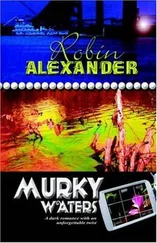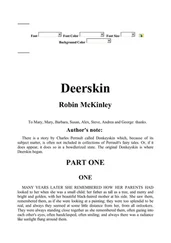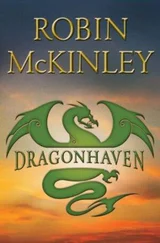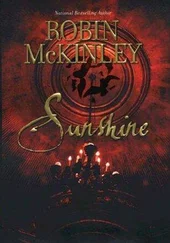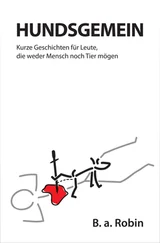Robin McKinley - Water
Здесь есть возможность читать онлайн «Robin McKinley - Water» весь текст электронной книги совершенно бесплатно (целиком полную версию без сокращений). В некоторых случаях можно слушать аудио, скачать через торрент в формате fb2 и присутствует краткое содержание. Год выпуска: 2002, ISBN: 2002, Издательство: Firebird, Жанр: Старинная литература, на английском языке. Описание произведения, (предисловие) а так же отзывы посетителей доступны на портале библиотеки ЛибКат.
- Название:Water
- Автор:
- Издательство:Firebird
- Жанр:
- Год:2002
- ISBN:9780142402443
- Рейтинг книги:4 / 5. Голосов: 1
-
Избранное:Добавить в избранное
- Отзывы:
-
Ваша оценка:
- 80
- 1
- 2
- 3
- 4
- 5
Water: краткое содержание, описание и аннотация
Предлагаем к чтению аннотацию, описание, краткое содержание или предисловие (зависит от того, что написал сам автор книги «Water»). Если вы не нашли необходимую информацию о книге — напишите в комментариях, мы постараемся отыскать её.
Water — читать онлайн бесплатно полную книгу (весь текст) целиком
Ниже представлен текст книги, разбитый по страницам. Система сохранения места последней прочитанной страницы, позволяет с удобством читать онлайн бесплатно книгу «Water», без необходимости каждый раз заново искать на чём Вы остановились. Поставьте закладку, и сможете в любой момент перейти на страницу, на которой закончили чтение.
Интервал:
Закладка:
Jenny grew accustomed to Dreiad’s strange, ripply, silvery skin; it was much like fish-scales, although not quite like, and she had seen fish rarely enough in her life, and never thought of their scales as pleasant or unpleasant to look upon. But she found Dreiad, as the days passed, very pleasant to look at, and she forgot that he was scaly, and damp, and remembered only that his smile made him beautiful. As they grew to know more about each other, their differences became both more dear to them, and more shocking. They teased each about the language they shared, that (Jenny said) land-people had taken with them as they adapted to life in the sea; that (Dreiad said) land-people had learned to use even in the unforgiving air, which constantly dried out the mouth and throat and lungs, which even land-people acknowledged had to be kept moist. The idea of dairy cows was absurd to Dreiad: “Milk is for baby creatures! Your mother suckled you, did she not? And then stopped as you grew bigger. Cow milk is for baby cows!” She brought him a piece of cheese, but although he tasted it, he made a wry face and was not converted. But Jenny found the green juice that the sea-people ordinarily drank, which was some decoction made of underwater grass, too terrible even to sip at.
They rarely touched, for his skin was clammy on hers, and hers uncomfortably hot to him; and when they realised they had fallen in love with each other, this became a sorrow to them, and they teased each other less about sea and land, and their conversations grew awkward. Jenny’s parents began to worry about her again, for she looked a little less rosy and a little more haggard, and they wondered if perhaps Robert had waylaid her sometime during her absences from the farm, and was attempting to win her back. They asked her about this, but she said “No, no” impatiently, and with that they chose to be content for a little longer.
It did happen occasionally that Jenny and Dreiad could not meet for a day or two; their lives had been full and busy before they met, and squeezing several secret hours every day from their normal occupations was not possible. Neither made any protest when the other said that they could not meet the next day, but they always parted sadly on those days, and Jenny, at least, began to ride home pondering how what had begun might end, and yet not willing to ponder. For the moment his company was enough and more than enough, in the way of lovers; but she knew the time was coming when this would no longer be true, because he was of the sea and she was of the land, and she knew that even the thinking of it made that time grow closer. Dreiad had never said that he loved her, any more than she had ever said she loved him; but she knew that he did, because there was so much in each of their natures that reflected the other, in a way that was new and strange and wonderful. And nothing at all like her days with Robert had been. Nothing at all. Nothing. Nothing.
It was an afternoon when Dreiad had told her with an odd suppressed excitement that he could not meet her the next day. She had begun to ask him what his excitement was about, and he had begun to put her off—and so she stopped asking; but as a result they looked at each other with embarrassment and had not known how to pick up their conversation again. Even with the knowledge of having hurt her, Dreiad could not quite hide his excitement, whatever it was; and this hurt her too, that there should be something that gave him such pleasure that he could not tell her of. And as a result she began to doubt herself, to doubt the truth of his unspoken love; after all, she had believed—for much longer than she had known Dreiad—that Robert had loved her, and he had filled her ears with the telling of it besides.
It cannot end in any way but unhappiness, she thought. He will marry a sea-princess, for his parents need an heir; and I am not even a land-princess. I suppose, when the harvest is over, we will go to the city, as we were to do last year, and they will find me a nice young man to marry. The idea was so bleak, she could only look at it glancingly. But they were right about Robert; I should have listened to them—I should have let them speak. They will be able to find me someone who is kind, and keeps his promises, and I will listen to their advice. It will not be a bad life.
She drew on reserves she did not know she had, for she had never had cause to learn to put herself aside to be bright and merry for someone she cared about. But after they parted, for all that Dreiad had looked long into her eyes before he walked back into the sea again, and promised as eagerly as he had ever promised to meet her the day after tomorrow, she went home very unhappy.
She did not even hear the approaching hoofbeats, nor had she paid attention to Gruoch’s sudden look of interest and warning. When she did hear them, and knew it was too late to turn aside, she ignored them, keeping her face resolutely down, determined to pass without acknowledging the rider whomever it was. But this proved impossible, for a once-familiar hand reached out and seized her mare’s bridle, and Robert swung his horse around to walk next to hers, clumsily, for he was still holding her rein, and his leg ground against hers in the saddle. It was a heavyish blow, and his stirrup leather pinched her calf above her low riding boots and beneath the thin cloth of her skirt; but that was not the reason she cringed away from it, sending such a message to her sensitive mare that Flora curvetted away, fighting the strange hand on her rein, and threatening to kick. Robert had to let go.
By the time Jenny had her mare under control again, she realised there was no point in running away, although this had been her first thought. Gruoch was moving in that painstaking, measured way that a hound expecting the command Go! moves, and while Jenny did not believe that even with such a command her gentle bitch would leap for Robert, she was careful to keep her own gestures placid. She patted her mare’s neck, but Flora was no fool, and did not drop her head, but kept her neck and ears stiffly upright, and pranced where she stood.
“Jenny,” said Robert, and all of his twenty years’ experience of playing to his audience was in his voice. No one could have stuffed the two syllables of her name more full of anguish.
How could I ever not have known? she thought. She risked a glance at his face, and saw anguish beautifully arranged there too. It was a splendid performance, but it neither moved nor amused her. She felt low, and stupid, and humiliated.
“Forgive me,” he said. He was already a little dismayed by her unresponsiveness. He was so accustomed to being able to get what he wanted by careful handling and dazzlingly distracting displays of charm that he had forgotten that some people are simpler in their habits and more straightforward in their reactions. Since there was a little real anguish in him—although it was about the loss of the farm more than about the careless error that appeared to have lost him her—he felt that he was expressing genuine pain.
That, at least, was easy enough to answer. “No,” she said, and turned Flora’s head; but he thought he knew what the roles were, now, and he kicked his own horse to block her passage. Flora reared, not liking any of this at all, and spun around twice on her hocks, and Robert would have liked to do something heroic, but he was not much of a horseman. Jenny brought her mare down alone, and the effort steadied her, and she realised she was going to have to hear Robert out. She would not enjoy it, but she could bear it.
She was not interested in his explanations of a momentary madness, of the depth of his real passion for her, of how his—aberration—was in fact caused by the agony of the delay of their wedding; here she actually curled her lip, and he hastened on. He even shed tears, and she watched, fascinated in spite of herself. He called her cruel, first still in anguish, and then, as he realised he was getting nowhere, in anger. How dare she set her paltry will against his? She wasn’t even pretty.
Читать дальшеИнтервал:
Закладка:
Похожие книги на «Water»
Представляем Вашему вниманию похожие книги на «Water» списком для выбора. Мы отобрали схожую по названию и смыслу литературу в надежде предоставить читателям больше вариантов отыскать новые, интересные, ещё непрочитанные произведения.
Обсуждение, отзывы о книге «Water» и просто собственные мнения читателей. Оставьте ваши комментарии, напишите, что Вы думаете о произведении, его смысле или главных героях. Укажите что конкретно понравилось, а что нет, и почему Вы так считаете.

